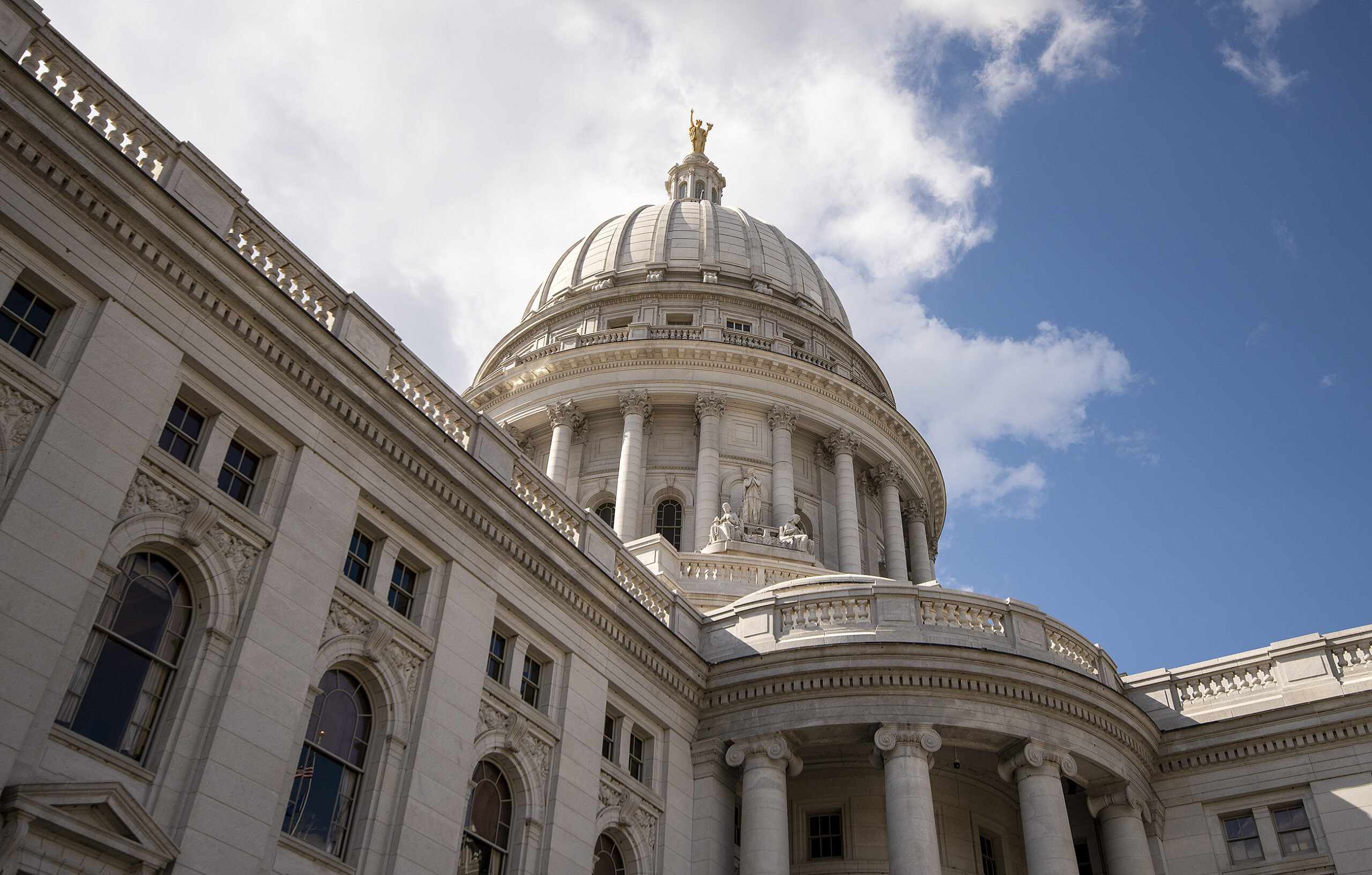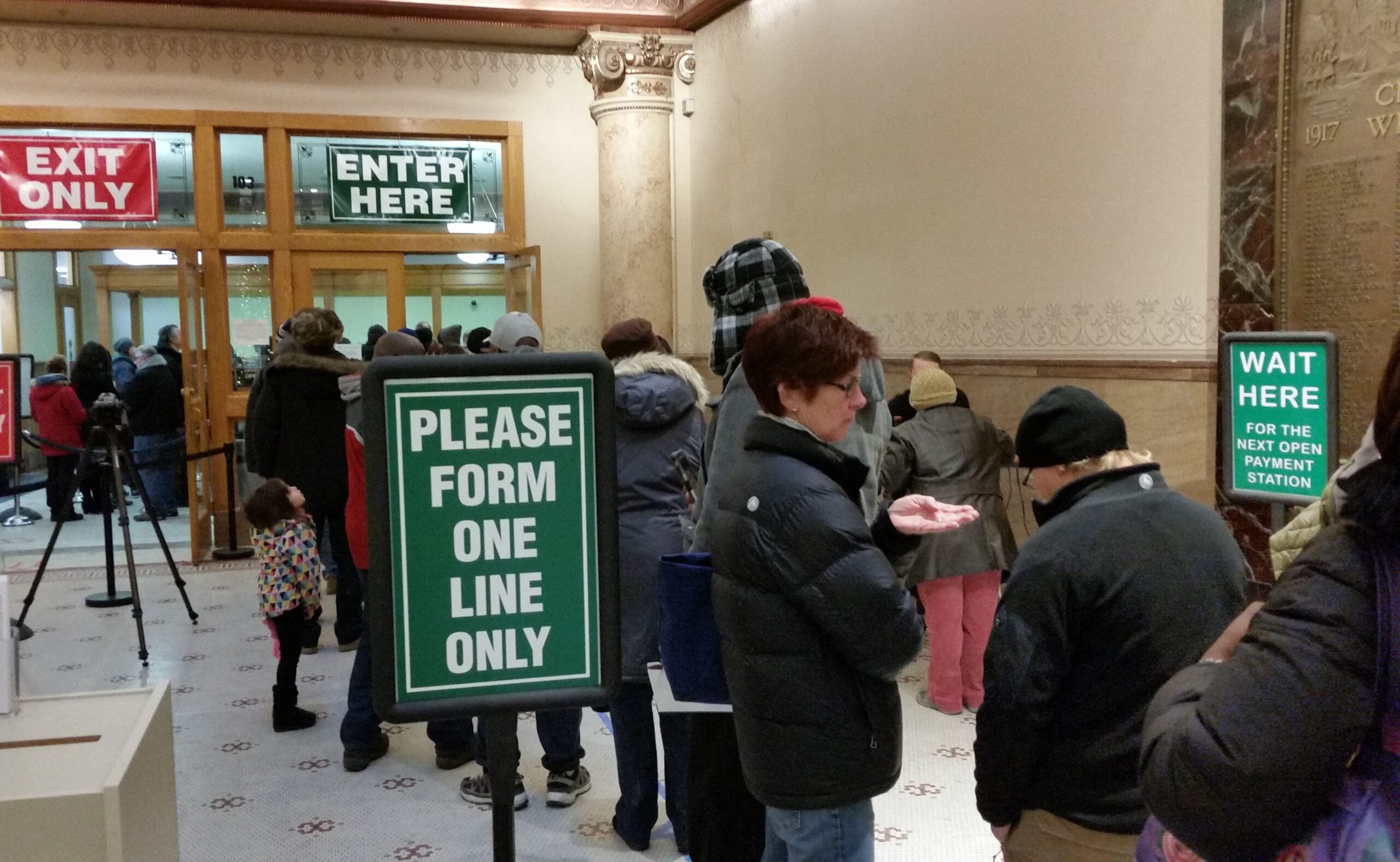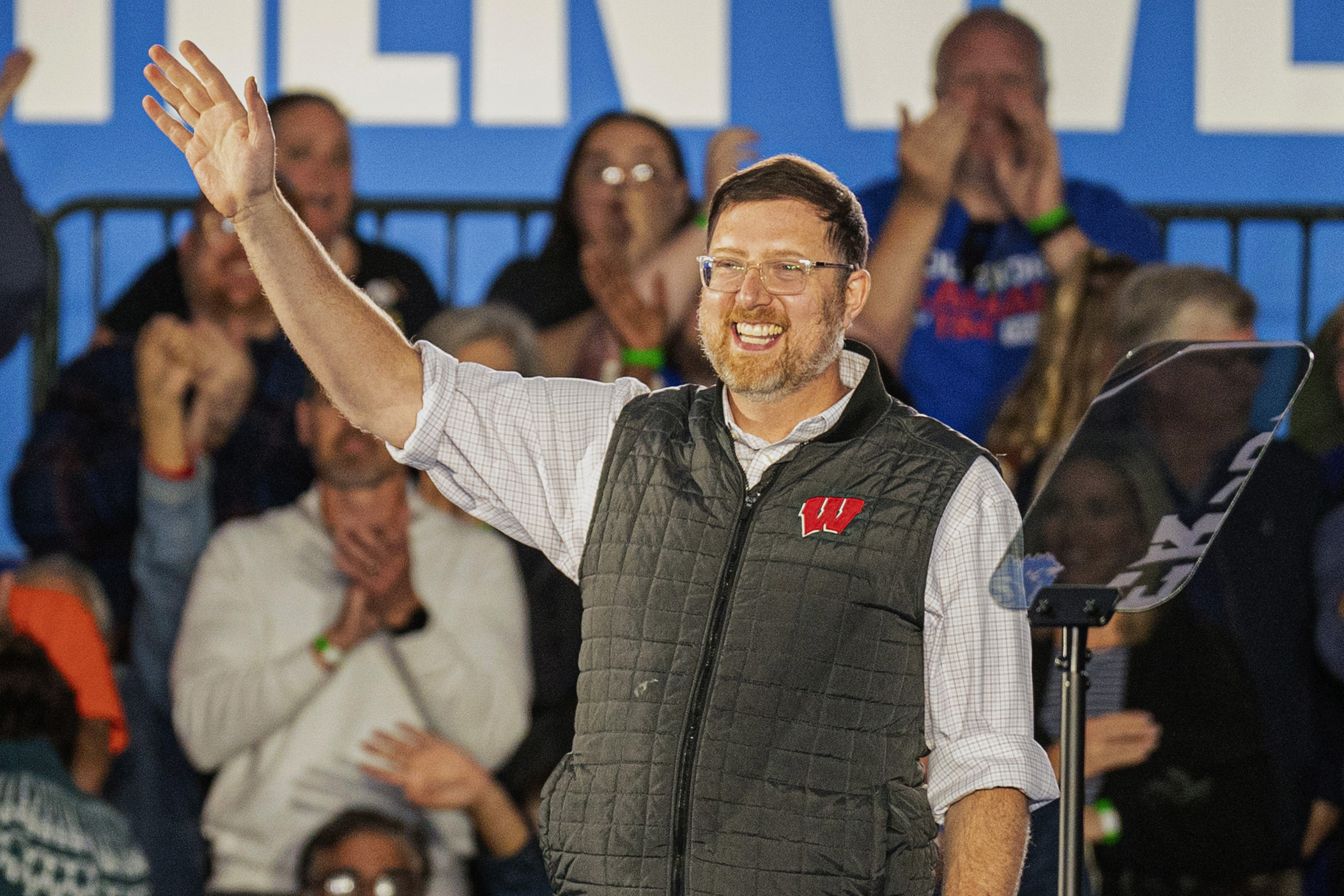The next governor’s race is sure to include campaign promises from candidates on how they’d handle Wisconsin’s budget, but unlike in previous years, there could actually be money set aside to pay for them.
A combination of higher-than-expected tax revenues, continued deposits in the state’s rainy day fund and a massive influx of federal funding have left Wisconsin’s finances in better shape than many imagined was possible in March 2020 when the COVID-19 pandemic lead to mass closures and the economy tanked.
Now, the Legislature’s nonpartisan budget office projects the next two-year budget will begin with a balance of roughly $1 billion on top of another $1.7 billion that’s set aside in the state’s rainy day fund. Those balances are especially noteworthy after Democratic Gov. Tony Evers signed a Republican-authored $2 billion tax cut as part of the current budget, which ends June 30, 2023.
News with a little more humanity
WPR’s “Wisconsin Today” newsletter keeps you connected to the state you love without feeling overwhelmed. No paywall. No agenda. No corporate filter.
The influx of federal funding has added another wrinkle. Whoever wins the next governor’s race won’t introduce the next budget until early of 2023, but Evers has sole discretion over how to use roughly $2.5 billion from Wisconsin’s share of the American Rescue Plan Act, the COVID-19 relief package President Joe Biden signed in March.
“(Evers) has resources to do things that I think were not expected and are available without him having to raise taxes to make it possible,” said Barry Burden, a professor of political science at the University of Wisconsin-Madison. “The fact that he is basically in sole control of distributing the federal COVID relief funds means that he’s satisfying a lot of different constituencies heading into the 2022 midterm elections without paying the price of being branded as a liberal Democrat who has raised taxes to make that happen.”
Evers had already allocated roughly $1.64 billion of the latest federal funding by mid-December, according to the Legislature’s nonpartisan budget office. That left roughly $890 million left to spend.
The governor has crisscrossed the state to award the funding in bits and pieces. For example, on Dec. 14, he announced nearly $60 million for regional projects aimed at developing long-term solutions to Wisconsin’s workforce challenges. Evers followed up the initial announcement with press conferences in some of the communities that were receiving the funds.
GOP lawmakers clashed with Evers over who would control the federal funding, arguing the Legislature should have a say in the process, just as it does with the state budget. They passed multiple bills earlier this year that would give them more oversight, but Evers vetoed all of them.
Once the federal funding is gone, whoever wins the next governor’s race could still pursue an ambitious agenda, such as higher spending or more tax cuts, thanks to the roughly $1 billion projected balance for the state’s general fund. The $1.7 billion rainy day fund is designed to be harder to access, but if a governor and Legislature agreed to spend the money, they could.
There are reasons to be cautious about the money, however, said Jason Stein, the research director at the Wisconsin Policy Forum, a public policy think tank. The state’s budget balance is based on projections which have fluctuated widely since the pandemic began.
“So much is uncertain right now,” Stein said. “A lot of humility, I think, is in order on this stuff, especially during COVID.”
Stein said that while state reserves are higher than they’ve been, calling it a “surplus” can be misleading. In the second year of the current two-year budget, the state would actually spend roughly $300 million more than it generates in tax revenue.
“We certainly can afford to have a year where we run in the red right now, given where we’re at,” Stein said. “But … the state can never sustain that indefinitely.”
Whether the state budget — and the projects it can fund — are a priority for voters remains an open question in the governor’s race, where so far, Republicans have put more focus on other issues.
For example, former Republican Lt. Gov. Rebecca Kleefisch, who entered the governor’s race in September, used her campaign launch video to attack Evers for his handling of the violence and destruction in Kenosha in 2020. She also talked about securing the United States-Mexico border.
The general election for the governor’s race is Nov. 8.
Wisconsin Public Radio, © Copyright 2025, Board of Regents of the University of Wisconsin System and Wisconsin Educational Communications Board.







